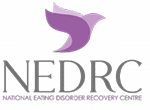National Eating Disorders Recovery Centre
First in Eating Disorders
What are Eating Disorders?
Eating Disorders can occur in people of all ages and genders, across all socioeconomic groups, and from any cultural background. A person does not have to be a particular size to have an Eating Disorder.
Binge Eating Disorder (BED) and other specified feeding or Eating Disorders (OSFED) are the most common Eating Disorders, affecting approximately 6% and 5%, respectively, while Anorexia Nervosa (AN) and Bulimia Nervosa (BN) each occur in below 1% of the general population.
Eating Disorders can occur in people of all ages and genders, across all socioeconomic groups, and from any cultural background. A person does not have to be a particular size to have an Eating Disorder.
Many people with an Eating Disorder also present with at least one other psychiatric disorder, e.g., mood, anxiety and substance use disorders, personality disorders, increasing evidence of ASD (Autism Spectrum Disorder- including ADHD).
The mortality rate for people with Eating Disorders is significantly higher than that of the average population and among the highest for a psychiatric illness. This is one of the reasons why it is vital that intervention happens as soon as possible.
Eating Disorders are serious mental illnesses, not a lifestyle choice.
The important thing to remember about Eating Disorders is:
- It is not a choice,
- It is not anyone’s fault,
- You can not “just snap out of it”,
- You can be any size or shape and have an Eating Disorder,
- It is not about food- food is a symptom,
- No matter what type of Eating Disorder you are diagnosed with, there are many common traits between each one,
- The main factor in developing an Eating Disorder is Mental Health,
- Most people with an Eating Disorder will experience shame, lack of self-worth, anxiety, sleep difficulties, black or white thinking, may be highly tuned to criticism, may display perfectionism traits- this mostly does not relate to body desires but to their work, School, College or aspects of their life,
Types of Eating Disorders:
Binge Eating Disorder (BED)
- Frequent episodes of binge eating involving the consumption of a large amount of food in a short period of time. Binge episodes will be accompanied by a loss of control over eating and the inability to stop the binge
- A range of identifiable eating habits, including eating very quickly, eating without being hungry and continuing to eat to discomfort when already full
- Feelings of guilt and shame about the amount of food consumed during a binge episode and the way it has been eaten. Binge eating often occurs at times of stress, anger, boredom or distress, and at these times may be a means of coping with challenging emotions
- Secretive behaviours around food. Because of their feelings around food, people with binge eating disorder are often very secretive about their eating habits and choose to eat alone
Anorexia Nervosa (AN)
- Restricted energy intake, leading to lower-than-normal body weight and, often, the loss of a considerable amount of weight in a short period of time
- These restrictive behaviours around food may be accompanied by excessive exercise
- An intense fear of gaining weight, even when the individual is already underweight, starved or malnourished
- Disturbed body image, including extreme emphasis on their appearance and the perception that they are overweight despite being considerably underweight
- Preoccupation with preparing foods for others
- Obsessive rituals around food- preparations, planning, etc.
- Eliminating certain food groups from the diet, e.g., Carbohydrate, Dairy or becoming Vegetarian, Vegan or going Gluten free without religious, environmental or medical reasons
Bulimia Nervosa (BN)
- Eating a very large amount of food within a relatively short period of time (e.g., within two hours)
- Feeling a sense of loss of control while eating (e.g., feeling unable to stop yourself from eating)
Followed by compensatory behaviours, these behaviours are used as a way of trying to control weight after binge eating episodes. They include:
- Vomiting
- Misusing laxatives or diuretics
- Fasting
- Excessive exercise
- Use of any drugs, illicit, prescription and/or ‘over the counter’ inappropriately for weight control (inappropriate use refers to use that is not indicated and for which the drug has not been prescribed)
- These behaviours are often concealed and people with bulimia can go to great lengths to keep their eating and exercise habits secret. As a result, bulimia can often go undetected for long periods of time
- Many people with bulimia nervosa experience weight fluctuations and do not lose weight; they can remain in the normal weight range, be slightly underweight, or may even gain weight
Avoidant/ Restrictive Food Intake Disorder (ARFID)
Is more than “picky eating”, it is an extreme version of this.
- Highly selective eating habits, disturbed feeding patterns or both. It often results in significant nutrition and energy deficiencies
- Common eating and feeding challenges for an individual with ARFID include difficulty digesting food; avoidance of specific types of food textures, colours and smells; eating at an abnormally slow pace, or having a general lack of appetite
- Anxiety when presented with “fear” foods.
Other Specified Feeding or Eating Disorder (OSFED)
- A person with OSFED may present with many of the symptoms of other Eating Disorders such as AN, BN or BED but will not meet the full criteria for diagnosis of these disorders.
- Around 30% of people who seek treatment for an Eating Disorder have OSFED.

“They may forget your name, but they will never forget how you made them feel”
Families are an important part of the recovery process and we encourage their participation but only with your consent. We also understand that not everyone has a relationship with their family and would not force this connection.
About Us
The National Eating Disorders Recovery Centre (NEDRC) supports a realistic view to health and weight. We incorporate WHO, NICE, MARSIPAN and the HSE Model of Care for Eating Disorders guidelines along with elements of Health at Every Size (HAES) principles, Intuitive Eating and Therapeutic Movement. We approach each individual with a holistic view, using the Medical, Therapeutic, Psychosocial and Recovery models.

Start your recovery journey today
Give us a call to schedule an appointment.
Phone: 01 564 4450 / 087 7755996




